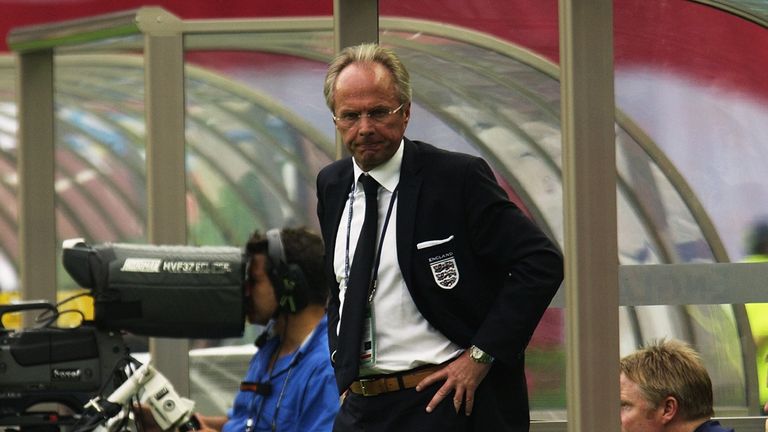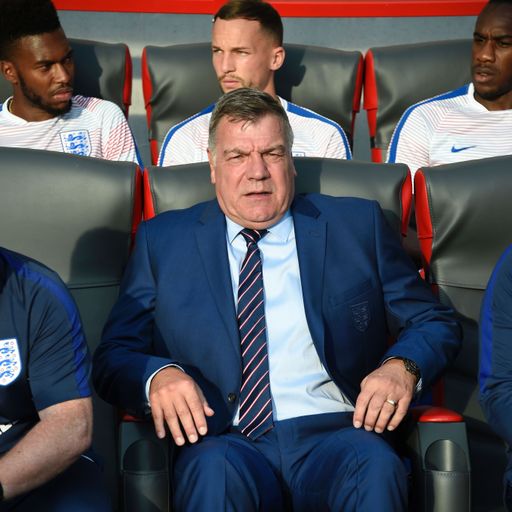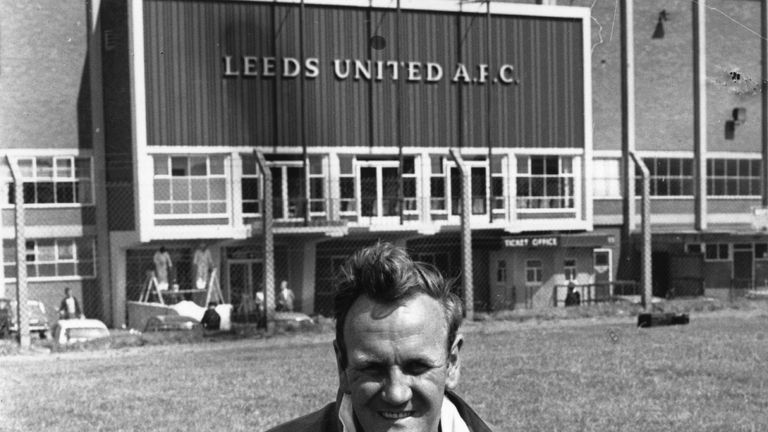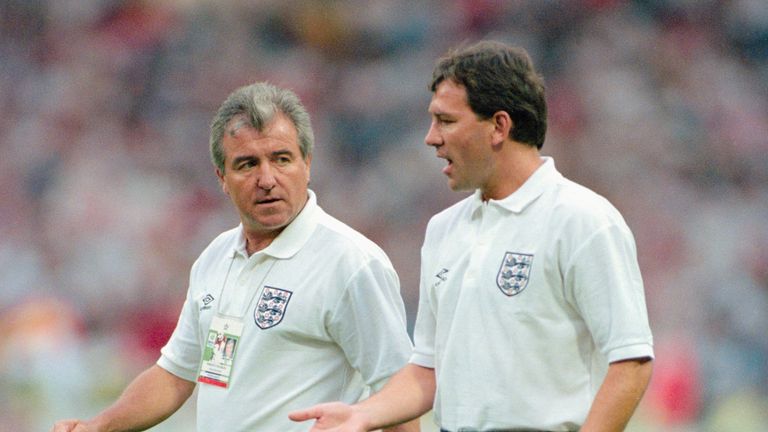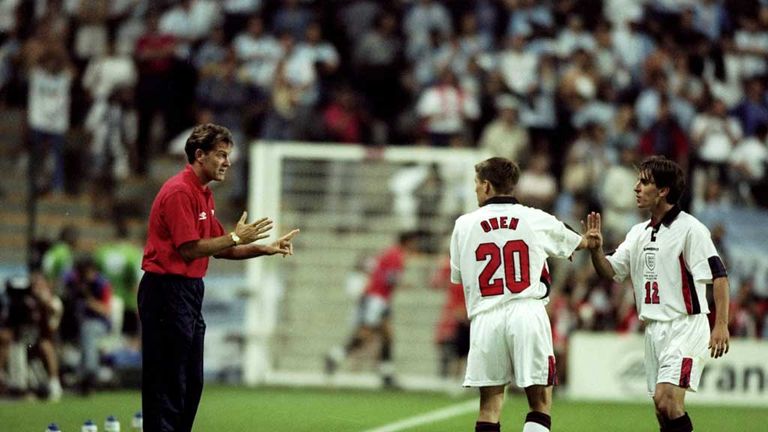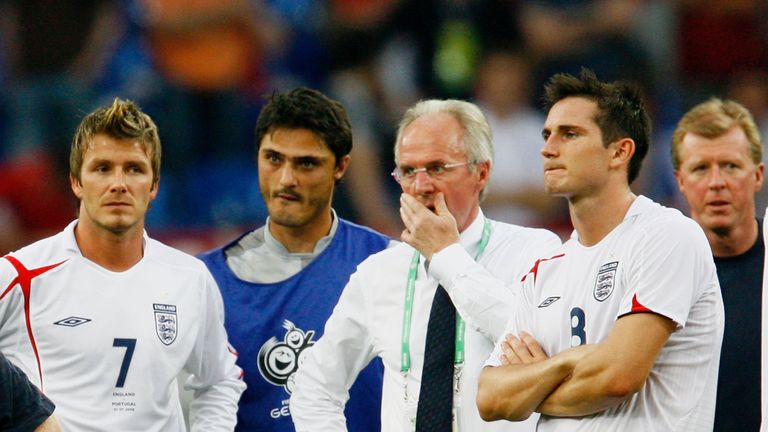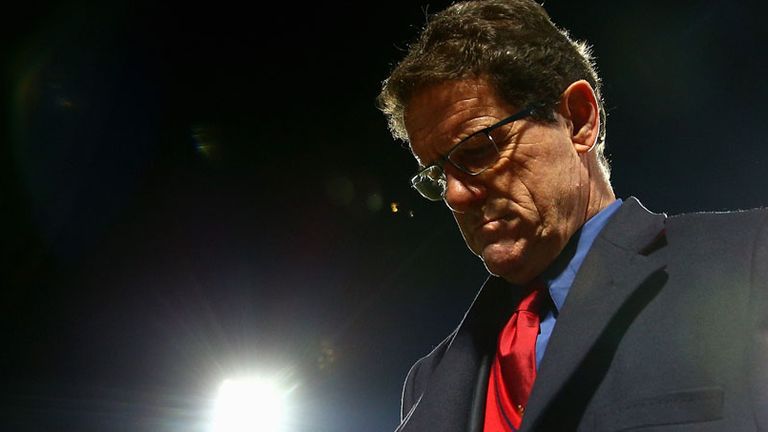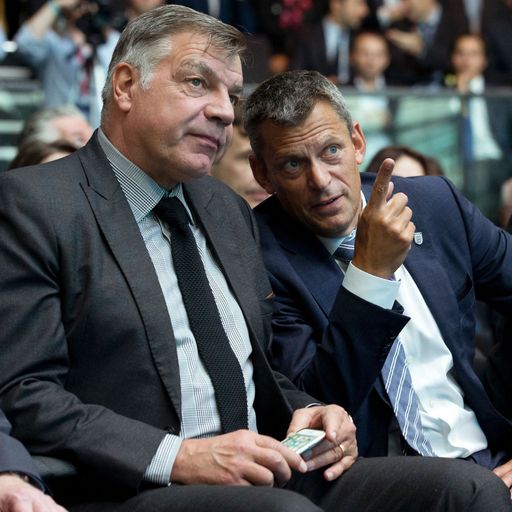England manager controversies: Don Revie, Glenn Hoddle, Fabio Capello and more
Tuesday 27 September 2016 20:57, UK
Sam Allardyce is certainly not the first England manager to find himself in the midst of controversy.
The 61-year-old has left his role as England manager after just one game in charge after he was secretly filmed discussing the possibility of circumventing Football Association rules on third-party ownership and mocking predecessor Roy Hodgson.
A report in The Daily Telegraph claims Allardyce told undercover reporters posing as businessmen it was possible to "get around" the FA rule, which was introduced in 2008, plus other revelations.
But how does Monday's story compare to these previous England manager controversies?
Revie resigns
In 1977, former Leeds boss Don Revie sold a story to the Daily Mail for £20,000, including revelations that he was quitting the job for a £340,000-a-year contract in the UAE, and became the first England manager to resign.
Revie's resignation letter did not appear at the FA until after the article was published, sparking ill-feeling within the body.
Revie, who won 14 of his 29 games in charge, also revealed the job created "too much heartache for those nearest me", while it was later reported Revie missed England's 0-0 friendly draw against Brazil in Rio to discuss a deal in the Middle East, despite telling the FA he was on a scouting mission.
The FA then suspended Revie from English football for 10 years on a charge of bringing the game into disrepute, though that suspension was overturned by a court.
El Tel probed
Terry Venables, the England boss who masterminded a run to the Euro 96 semi-finals, found himself embroiled in legal battles in the mid 1990s, following spells as manager and chief executive at Tottenham.
He issued a libel writ against the BBC after a Panorama documentary broadcast in September 1993 which made allegations about his business dealings. Venables proposed to give money to charity if Panorama could prove their accusations and threatened further legal action over the claims. The police could find no evidence of any irregularity.
Venables, who was appointed England boss in January 1994, decided to leave the post at the end of Euro 96 after the FA refused to grant him a contract extension leading up to the tournament.
Hoddle's "sins in a previous life"
Glenn Hoddle lost his job as England manager in 1999 after making a series of controversial comments about disabled people in a newspaper interview.
"You and I have been physically given two hands and two legs and half-decent brains," Hoddle was quoted as saying.
"Some people have not been born like that for a reason. The karma is working from another lifetime. What you sow, you have to reap."
Former Tottenham star Hoddle, who coached England at the 1998 World Cup, said his comments had been misinterpreted, but he was sacked by the FA despite eventually apologising for a "serious error of judgment".
Sven's fake Sheikh
England boss Sven-Goran Eriksson clung on to his job in 2006 after being caught in a newspaper sting.
Eriksson was on an FA-sanctioned trip to Dubai when he was contacted by an undercover reporter posing as a Sheikh who said he wanted to discuss a coaching job at a new football academy in the region.
The Swede was said to have told the reporter he would be willing to leave his England position to manage Aston Villa if the club was taken over, that England striker Michael Owen was not happy at Newcastle and that he would like to be paid as much as then Chelsea manager Jose Mourinho.
Eriksson's agent called the article "disgraceful entrapment" and, although the Swede survived to take charge at the 2006 World Cup, he left the post after the tournament and was quoted as saying the 'Fake Sheikh' sting was partly responsible for his departure.
Fabio walks away
Fabio Capello suffered an irreconcilable breakdown in his relationship with the FA after disagreeing with the board's decision to strip John Terry of the England captaincy in 2012.
The FA had charged the Chelsea star with racially abusing QPR defender Anton Ferdinand, but Terry, while admitting using the word "black" and swearing at Ferdinand, insisted he had only been repeating words he thought the defender had accused him of saying.
Terry was handed a four-match ban and a £220,000 fine by the FA, although the defender was found not guilty in his corresponding court case.
The FA's decision to remove the captaincy from Terry was followed by the player's resignation and Capello became embroiled in the saga by refusing to back his board and eventually stepping down over the issue.
The Capello Index
Capello's relationship with his players had suffered a major setback two years prior to his departure when he put his name to a ranking system that would assess the very players who were in his squad at the 2010 World Cup.
The 'Capello Index', as it became known, sparked controversy in the camp, with the FA banning the Italian from publishing his England rankings until after the tournament and senior England players leaking the squad's dissatisfaction.
"Now the players want to know when they'll get the chance to mark him," one such senior player told The Sun. "There was an easy way to avoid all this - don't mark the players in the first place."
